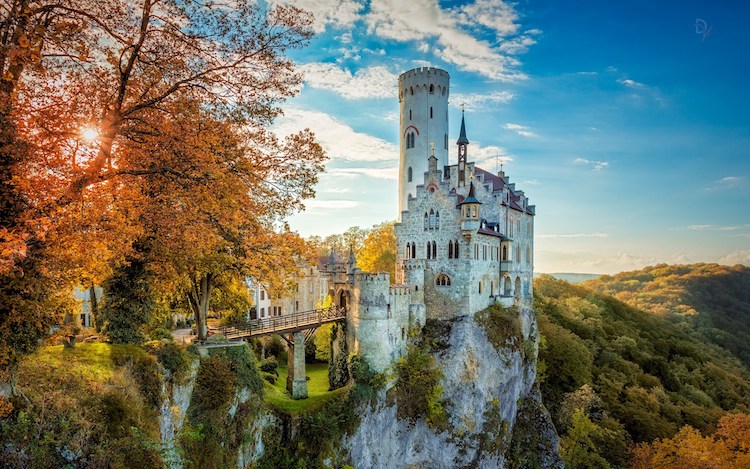
Photo source: iam4real
Fairy tales aren’t just for story books—there are plenty of them that seemingly exist in the real world, too. The enchanting Lichtenstein Castle, located in southern Germany, is one place that looks like it could be a dramatic setting for knights and fair maidens. First built in the 12th century and added onto in the 19th century, the palace sits on a cliff in the Swabian Alps and overlooks picturesque rolling hills below.
If the Lichtenstein Castle looks like two separate entities, it’s because of its two distinct eras of construction. The structure was originally built—and reconstructed—multiple times between 1100 and 1390 thanks to various wars. With each iteration, former ruins would inform the building of the new castle.
In 1802, King Frederick I of Württemberg dismantled part of the structure and rebuilt it as a hunting lodge. It was later purchased from Frederick I in 1837 from his cousin Count Wilhelm von Urach, who took a special interest in medieval history, art, and architecture. Wanting to live in his own medieval castle, he commissioned architect Carl Alexander Heideloff to design it near the lodge. The Gothic-Revival architectural style was inspired by the 1826 novel Lichtenstein by Wilhelm Hauff, to which the castle owes its name. Completed in 1842, its interior was decorated with medieval-style paintings and boasted a courtyard among its bastions and turrets.
The castle was used as a residence throughout the late 19th century and into the 20th. It was, however, damaged during World War II, with efforts to repair it starting shortly after. With the help of local non-profits, it was restored and is now a popular tourist destination. If you’d like to enjoy this piece of history—and imagine yourself as royalty—the Lichtenstein Castle is open 10 months out of the year. They offer guided tours where you can view the historical artwork, stained glass, and armory. And, as these photos show, amazing panoramic views of the surrounding landscape.
The Lichtenstein Castle is located in southern Germany and looks like something out of a fairy tale.

Photo credit: Sergey Novikov / Shutterstock
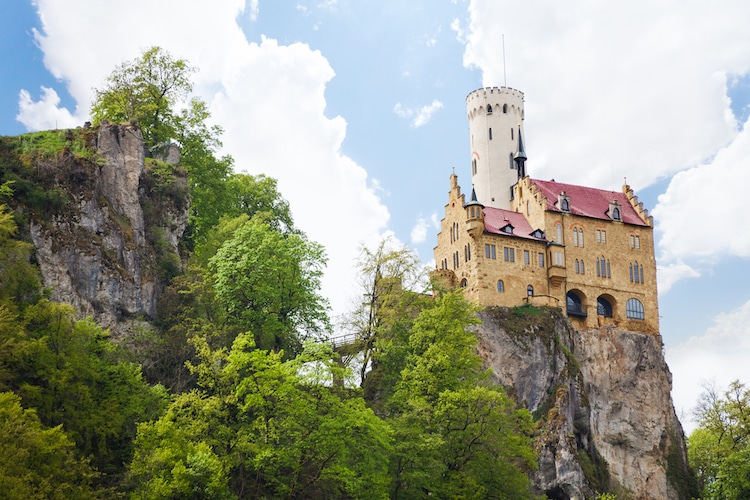
Photo credit: Sergey Novikov / Shutterstock
Originally built in the 12th century, it sits atop a cliff in the Swabian Alps.
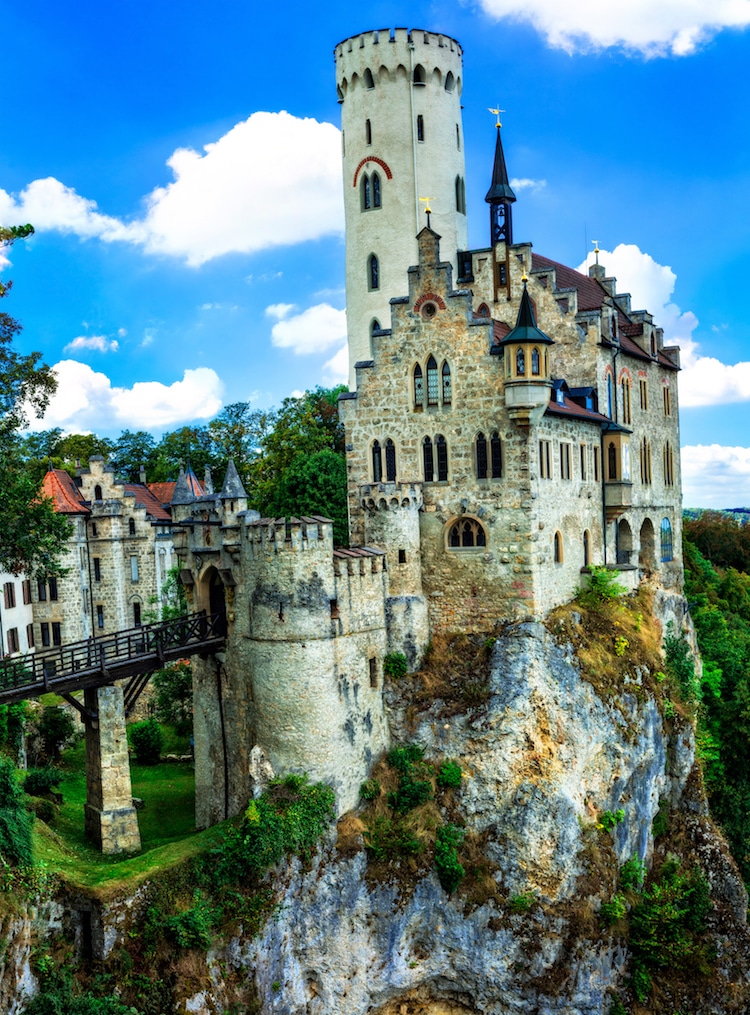
Photo credit: Leoks / Shutterstock
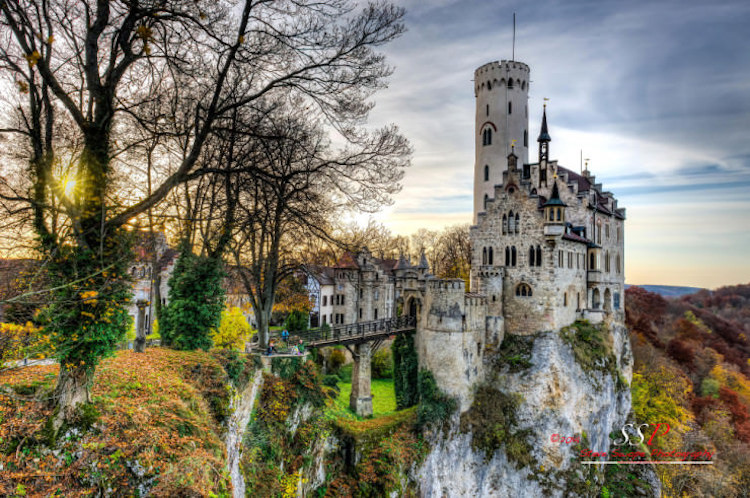
Photo credit: Steve Swope
Its Gothic-Revival architecture was commissioned by Count Wilhelm von Urach. He loved medieval art and architecture and wanted to live in a castle of that style.

Photo credit: Siegfried Heinrich
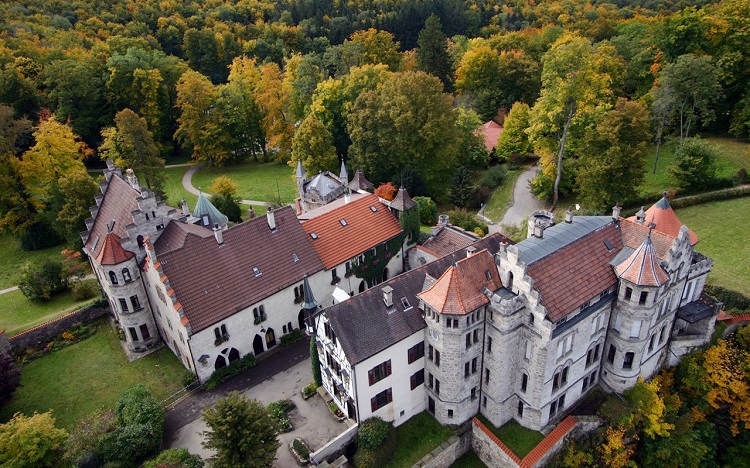
Photo credit: Schloss Lichtenstein
In addition the architecture, the interior is clad with medieval decor. As a visitor, you can admire all of its opulent details.

Photo credit: Schloss Lichtenstein
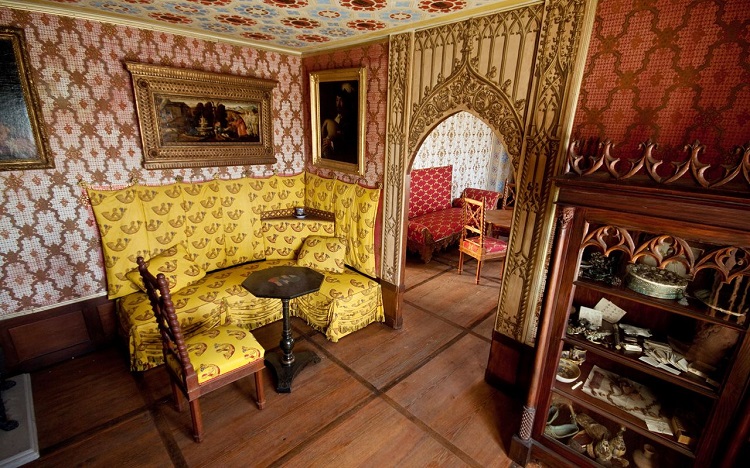
Photo credit: Schloss Lichtenstein
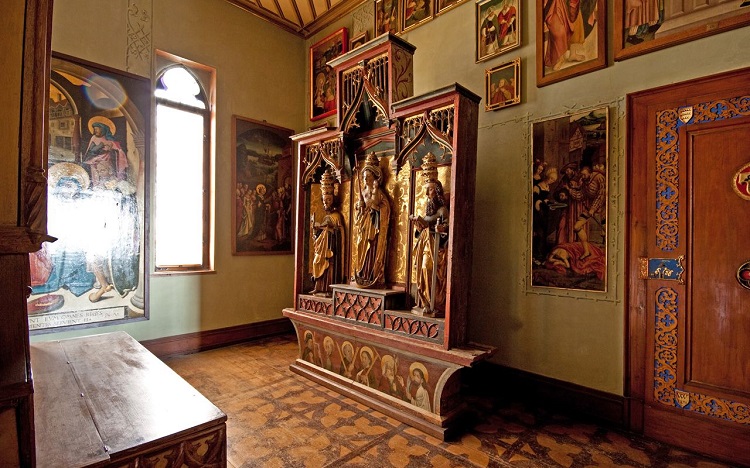
Photo credit: Schloss Lichtenstein
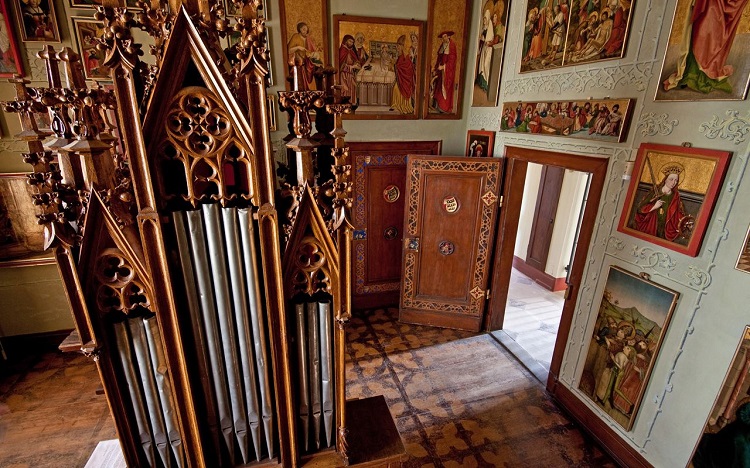
Photo credit: Schloss Lichtenstein
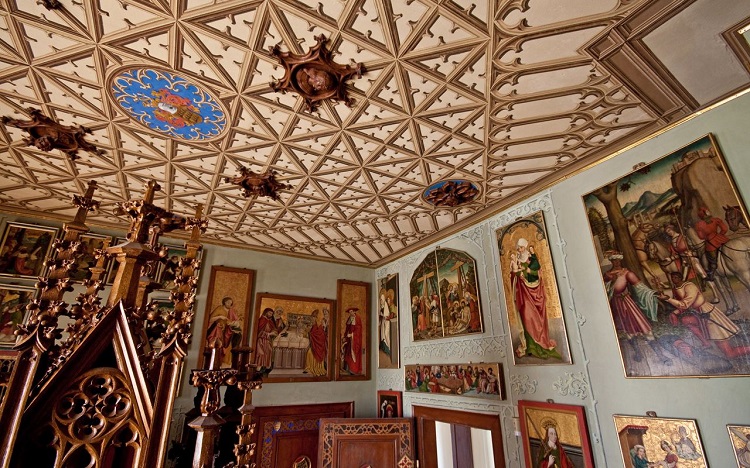
Photo credit: Schloss Lichtenstein
